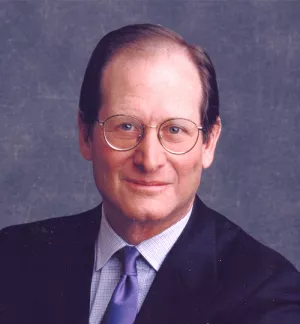The House just passed a stand-alone repeal of the 1993 "don't ask, don't tell" statute forcing gays and lesbians into silent military service this past week. The issue now heads to a final showdown in the Senate.
There are two key substantive issues that affect the politics: How would repeal be implemented and what would be the impact of repeal if properly implemented?
Critics of repeal, such as Senator John McCain, get the issues backward: They focus on the impact as if careful implementation had not taken place.
They ignore that the U.S. military has, in the past, made two momentous and largely successful transitions in the face of opposition among the uniformed force: racial integration and gender integration. They also ignore successful transitions in other nations, which have explicitly recognized gays and lesbians in the military: The Netherlands (1974), Australia (1992), Canada (1992), Israel (1998), UK (2000), and Germany (2000). These transitions include troops in combat.
Most importantly, they ignore the careful analyses of how to address allegedly controversial implementation problems in gay and lesbian integration, which are contained in two recent studies: the Pentagon's 150 page "Report of the Comprehensive Review of the Issues Associated with a Repeal of Don't Ask, Don't Tell" and the Rand Corporation's report on "Sexual Orientation and U.S. Military Personnel Policy," prepared for the Secretary of Defense as part of the DADT repeal review.
Both reports candidly and thoughtfully address sensitive issues raised by repeal (although the recommendations will hardly please everyone). Both should be read (again?) by every moderate Republican senator undecided about whether to be the 60th vote for cloture and to allow Senate repeal to go forward. And both should be read by citizens who want to get behind the "culture war" headlines and learn about how pluralism and diversity are handled in the disciplined, rule-bound armed services.
Here is a brief look at how the Pentagon proposes to handle some of those controversial issues raised about gay and lesbian integration.
What is the potential for unprofessional relationships between service members; public displays of affection, dress and appearance; and acts of violence, harassment or disrespect between homosexual and heterosexual members?
The current military standards of conduct--the Uniform Code of Military Justice, Service regulations and policies, and customs and traditions--already address these issues for all in the uniformed forces. Such standards of conduct, says the Pentagon report, must be applied uniformly without regard to sexual orientation and with appropriate guidance to commanders that general tools for handling such issues are adequate.
How should the Armed Forces handle Service members who raise religious objections to homosexuality--and chaplains whose religion condemns homosexuality?
As to the service members, the Pentagon report says:
...the reality is that in today's U.S. military, people of sharply different moral values and religious convictions--including those who believe that abortion is murder and those who do not, those who believe Jesus Christ is the Son of God, and those who do not--live and fight together on a daily basis... Service members will not be required to change their personal views and religious beliefs; they must, however, continue to respect and serve with others who hold different views and beliefs
As has long been the tradition of forces reflecting America's diversity.
As to the 3,000 chaplains who currently serve, the report makes clear that service chaplains under existing policies will not be required to perform a religious role inconsistent with their faith, but that the chaplain's fundamental role is to "care for all Service members" including those with no faith or different religious faiths as requested. This will not change--as chaplains may minister to soldiers who, under their faith, "sin" in other ways.
What about Service members who have reluctance to share living quarters or bathroom facilities with someone known to be gay or lesbian?
The Pentagon report strongly recommends against segregated living or bathing facilities. As the report says, such segregation would "do more harm than good for unit cohesion, create a climate of stigmatization and isolation and be impossible to enforce or administer unless service members are required to disclose their sexual orientation" (and, says the report, many are not likely to do so). The report notes that some of these concerns are based on stereotypes of gays and lesbians (as "predators," for example), which are false. "The reality is that people of different sexual orientation use shower and bathroom facilities together every day in hundreds of thousands of college dorms, college and high school gyms, professional sports locker rooms, police and fire stations and athletic clubs."
Should sexual orientation be a protected class--like race, color, religion, sex or national origin--in Armed Services Equal Opportunity Programs, which are handled through a special Military Equal Opportunity program, and are the focus of diversity initiatives, and are tracked as "identifiers" in Service personnel systems?
The report says "no," gays and lesbians should not be a special protected class under armed services equal opportunity programs. The Department of Defense should make clear that sexual orientation may not be a factor in accession, promotion or other personnel decisions. Gay and lesbian Service members must be evaluated on individual merit and protected from harassment or abuse. Complaints should be lodged with the chain of command or the inspector general. The rationale (compromise) behind this report recommendation is that integration will proceed much more effectively if service members see repeal of DADT as simply putting gays and lesbians on equal footing with others, with the same equal opportunity, and not receiving special status.
Would repeal increase the risk of HIV in the military or the safety of the blood supply? Existing policies and procedures deal with reducing risks from sexually transmitted diseases and with protecting the blood supply?.
The surgeon generals of each military department signed a joint letter stating simply that repeal of DADT "will not affect the medical readiness of the Armed Forces....[nor] require a change to any medical policies."
The key to successful implementation is, of course, leadership because the military is a command and control organization. The Pentagon report emphasizes that leaders must enunciate a clear and unmistakable message after repeal to sustain unit effectiveness, readiness and cohesion. Leaders must emphasize service members' fundamental obligation to follow military policy and standards of conduct. They must underscore that unit strength depends on treating each member with respect. Clearly, leadership will also be vital in dealing with individual frictions and issues--the implementation guidelines briefly described above (and there are others in the report) will obviously not handle all cases.
Leadership is thus key in minimizing the impact of DADT repeal on essential impact issues like force readiness (especially in combat areas), recruitment, and retention. On the question of combat readiness, the report notes that, because gay and lesbian integration can, with respect to many issues, be implemented with existing policies, commanders in "deployed areas" can handle required education and training. It notes that, during the current period of war, field commanders have led on new training relating to sexual assault prevention, suicide prevention and sensitivity to behavioral health problems.
At the end of the day, the report underscores the racial and gender integration in the U.S. military and the integration of gays and lesbians in the military of other nations. It concludes that:
The general lessons we take from these transformational experiences in history is that in matters of personnel change within the military, predictions and surveys tend to overestimate negative consequences and underestimate the U.S. military's ability to adapt and incorporate within its ranks the diversity that is reflective of American society at large.
Together, the Pentagon report and the Rand Corporation report make a strong, detailed case that the explicit recognition of gays and lesbians in the military can be handled successfully. As the Pentagon report states:
...the risk of repeal of Don't Ask, Don't Tell to overall military effectiveness is low... while a repeal of Don't Ask, Don't Tell will likely, in the short term, bring about some limited and isolated disruption to unit cohesion and retention, we do not believe [it] will be long-lasting and can be adequately addressed by the recommendations [on implementation].
Longer term, with a continued and sustained commitment to core values of leadership, professionalism and respect for all, we are convinced that the U.S. military can adjust and accommodate this change, just as it has others in history.
* * * *
The Pentagon report was based, in part, on extensive surveys of active members, spouses, chaplains, focus-groups, service academy superintendents, veterans groups, allies,
Pentagon leadership and, on a confidential basis, past and present gays and lesbians.
The question asked was fundamentally about what would happen if the "Don't Ask, Don't Tell" statute were repealed, with 30 percent in general saying it would have a negative effect and higher numbers in the Marine Corps and some combat arms specialties. The report focused on the high percentage that said it would have no effect, and on effective implementation to address the problems of those who said it would have a negative effect.
The Pentagon report was bitterly criticized by Senator McCain, who said that rather than asking about repeal's impact the study should have asked about whether service members wanted the law repealed at all.
Secretary Gates responded that asking troops if they wanted to serve alongside gays--as opposed to asking about likely impact of repeal--would amount to conducting a referendum on a policy decision that should be made by Congress or the courts. "Are you going to ask them [the troops] if they want 15 month tours? Are you going to ask them if they want to be part of the surge in Iraq? That's not the way our civilian led military has ever worked in our entire history," Gates told McCain at a Senate Armed Services Committee hearing.
Heineman, Ben. “In Repealing 'Don't Ask, Don't Tell,' Implementation Matters.” The Atlantic, December 17, 2010


